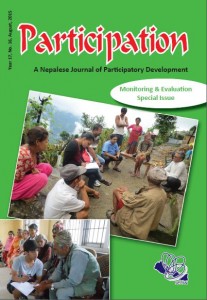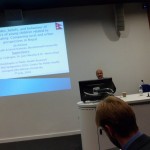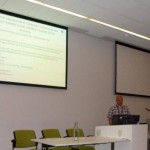 Congratulations to FHSS Ph.D. student Jib Acharya on the publication of his latest paper on childhood nutrition in Nepal.[1] Mr. Acharya’s study included a cross-sectional, community-based survey of 524 mothers in one district of Nepal. These were mothers of young children aged 36-60 months who are no longer breastfed at the time. The questionnaire survey included: socio-demographic measurements, knowledge, beliefs and attitudes about nutritious food, as well as child feeding patterns, food recommendation, major barriers, food insecurity and health-seeking behaviours. Jib’s mixed-methods Ph.D. work is supervised by Dr. Jane Murphy, Dr. Martin Hind and Prof. Edwin van Teijlingen.
Congratulations to FHSS Ph.D. student Jib Acharya on the publication of his latest paper on childhood nutrition in Nepal.[1] Mr. Acharya’s study included a cross-sectional, community-based survey of 524 mothers in one district of Nepal. These were mothers of young children aged 36-60 months who are no longer breastfed at the time. The questionnaire survey included: socio-demographic measurements, knowledge, beliefs and attitudes about nutritious food, as well as child feeding patterns, food recommendation, major barriers, food insecurity and health-seeking behaviours. Jib’s mixed-methods Ph.D. work is supervised by Dr. Jane Murphy, Dr. Martin Hind and Prof. Edwin van Teijlingen.
The study found that both urban and rural mothers lacked knowledge of what food is nutritious. Moreover, their attitudes and views appeared often ill informed. This study suggests that a different approach was needed because the public health problems are associated with behaviour. Thus, more attention should be paid to appropriate intervention of under-nutrition in poor communities like this one studied in Nepal.
Prof. Edwin van Teijlingen
CMMPH
Reference:
- Acharya, J., van Teijlingen, E., Murphy, J., Hind, M. (2015) Assessment of knowledge, beliefs and attitudes towards healthy diet among mothers in Kaski, Nepal, Participation 17 (16): 61-72.
 BNAC presentation Jib Acharya
BNAC presentation Jib Acharya Presentation PhD student Jib Acharya in Liverpool
Presentation PhD student Jib Acharya in Liverpool FHSS PhD student Jib Acharya presented at University of Chester
FHSS PhD student Jib Acharya presented at University of Chester










 New CMWH paper on maternity care
New CMWH paper on maternity care From Sustainable Research to Sustainable Research Lives: Reflections from the SPROUT Network Event
From Sustainable Research to Sustainable Research Lives: Reflections from the SPROUT Network Event REF Code of Practice consultation is open!
REF Code of Practice consultation is open! ECR Funding Open Call: Research Culture & Community Grant – Apply now
ECR Funding Open Call: Research Culture & Community Grant – Apply now ECR Funding Open Call: Research Culture & Community Grant – Application Deadline Friday 12 December
ECR Funding Open Call: Research Culture & Community Grant – Application Deadline Friday 12 December MSCA Postdoctoral Fellowships 2025 Call
MSCA Postdoctoral Fellowships 2025 Call ERC Advanced Grant 2025 Webinar
ERC Advanced Grant 2025 Webinar Update on UKRO services
Update on UKRO services European research project exploring use of ‘virtual twins’ to better manage metabolic associated fatty liver disease
European research project exploring use of ‘virtual twins’ to better manage metabolic associated fatty liver disease